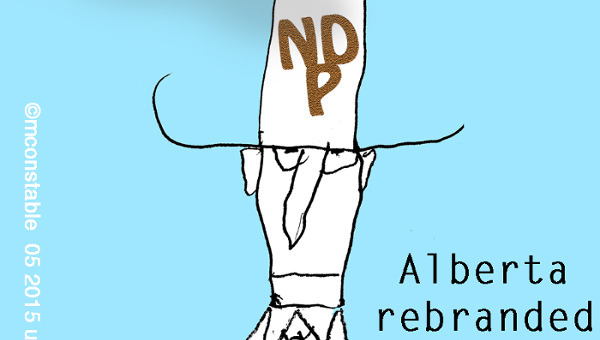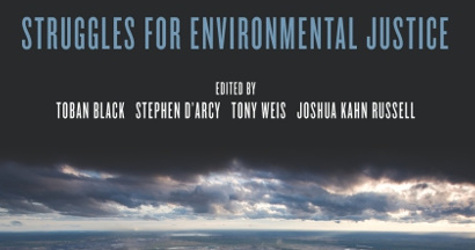Cold Turkey Kenney: Oil-Addiction, Withdrawal and Alternatives in Alberta
Alberta Premier Jason Kenney’s messages were often inconsistent, and would certainly fail fact-checking, but they were very persuasive. Until recently. Uncertainties create demand for reassurance, and the reasons for uncertainty are plenty. Financial markets and oil prices are on a roller coaster, putting jobs, pensions, mortgage and student-debt payments at risk. A flood roaring through downtown Calgary, a wildfire blasting Fort McMurray, temperatures rising and precipitation reaching the volatility levels seen until recently only on the trading floors for stocks, derivatives and, of course, oil. In light of acute disasters and climate change more generally, can one really dismiss environmentalists’ claim that burning fossil fuels is the root-cause for these phenomena? If this claim can’t be dismissed, can one hang on to the dreams of oil-based prosperity?
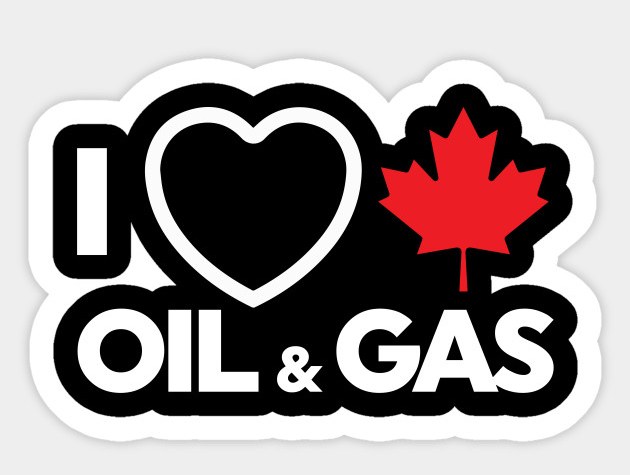
One can, said Jason Kenney. He resigned his seat as MP in Ottawa, united the forces of fossil fuel counter-revolution under the banner of the UCP (United Conservative Party) and pledged to free Alberta from the carbon-tax adopted by NDP Premier Rachel Notley’s government (backed by Justin Trudeau’s Liberal government in Ottawa). He could do this because he reassured Albertans that they are good, hard-working, laws-of-supply-and-demand-abiding people. That there would be prosperity if they got not only Notley, but also Justin Trudeau, Greta Thunberg and railway-blocking First Nations protestors off their backs. Such reassurance in times of uncertainty was more important than consistent and science-based policies.
As long as some oil revenue came in, the now Premier Kenney and his followers were on a high. But the revenue stream ran low even before the coronavirus ended a long-lasting stock market fever and sent oil prices to record lows. In fact, the provincial budget, released on the cusp of the corona crash, drew such a sharp line between tax-break-enjoying oil companies, on one side, and public services providing and using people, on the other side, that it ended the high for many of Kenney’s followers.
Oil prices falling below the break-even point of even the most efficient of Alberta’s tar sands projects forced Kenney into withdrawal. Rather than threatening Wexit if Trudeau doesn’t yield to Alberta’s free-oil-trade demands, he’s now desperate for every shot of relief money he can get from Ottawa. The value of his political capital went down as fast as share and oil prices fell.
With his reputation in shambles, he may seek to recover some of his buddies’ economic losses by redirecting even more tax money from public services to private coffers once the corona lockdown is over. However, the corona lockdown could also shift people’s priorities from pipeline dreams of unlimited market access, to life essentials like food, health and housing. Based on such priorities, opposition to the fossil-profits-for-a-few economy may grow, to be replaced by an ecological-and-social-damage-for-many economy… even in a province where oil-addiction runs deep and the organized opposition is next to non-existent.
Markets
Delusions of grandeur are one of the symptoms of oil addiction. That feeling of oil being the hottest thing around and the one of being part of the oil economy makes you hot, too. The factual truth, easily neglected while on an oil-high, is that Alberta’s oil economy has been at its most lukewarm for years,pretty much in line with the sluggish growth of the Canadian economy at large, just more volatile. But if there was something hot before the corona crash, it was stock markets. Calgary may be Canada’s oil capital, but its bosses have nothing to sell other than this one commodity. On Toronto’s Bay Street, they buy and sell any commodity, share and bond imaginable, and some hard-to-imagine ones as well. Getting Alberta’s oil economy to be as hot as the TSX was Kenney’s goal. Then Albertans would get their kicks out of being part of that economy. A goal as ambitious as it was misguided, indeed, a goal one could probably pursue only if one were already on a fact-neglecting high.
To begin with, the TSX, like stock-market indices around the world, was grossly overvalued before the crash. From a trough of 7,663 points on February 2, 2009, it rose, with some ups and downs, of course, to a peak of 17,975 points on February 20, 2020, before it dropped to 11,181 on March 23. That is a veritable crash. However, considering how sluggish growth has been since the Great Recession, it is also a market correction.
While the TSX rose by 234.5 per cent between 2009 and 2019, GDP only rose by 126.9 per cent over the same period. In the fall of 2019, quarterly GDP growth dropped to 0.3 per cent, while the average rate for the 2009-to-2019 period was 1.6 per cent. Even business economists expected a recession. In this light, it almost seems as if big investors were desperately waiting for an excuse to dump shares and found it in the coronavirus. Unlike in 2008-09 when big finance took the flack for pushing the world into crisis, this time the blame could be laid at somebody else’s door. Tying the hopes for an oil-high on overvalued stock markets just produced more illusions. The 2009-to-2019 cycle made it more than clear that rising stock prices are not necessarily followed by rising investment in productive capacity, infrastructure and employment.
Secondly, Alberta’s oil-industry isn’t exactly cutting edge. Prices for Western Canadian Select quickly recovered from a low of $23.18 (US) per barrel in November 2008 and reached a peak at $86.56 in May 2014. Not quite the all-time high of $114.95 reached in June 2008, but still good money. Investment in the oil industry also peaked in 2014 but plummeted when the oil price dropped to $17.88 in December 2015 and to an all-time low of $5.97 in November 2018. Prices didn’t stay that low, reaching another peak at $55.84 in April 2019. However, investments had already peaked in December 2013 at $97.88-million (CND). By the time of the December 2015 price drop, they were already down to $60.827-million (CND) and have remained at that level ever since, a clear sign that the resource super-cycle that took off back in 2003 had come to an end. On March 26, 2020, prices dropped to a new low of $6.45. For most tar sand projects, that is far below the break-even point.
Prices won’t stay that low, but as developments since the December 2015 price drop have shown, even an almost ten-fold increase in prices can leave the inducement to invest untouched and for good reason: the world is awash with oil. The resource super-cycle lifted hitherto unprofitable shale and tar sands oil above the break-even point. Faced with this new competition, conventional oil producers were keen to keep their market share. This is a competitive race in which conventional oil producers always had lower production costs on their side. But some of them, notably Saudi Arabia, are also in dire need of oil revenue and seem to be willing to go through a price war that non-conventional producers can’t win.
If that wasn’t bad enough, capital invested in any kind of fossil fuel extraction is facing increasing competition from producers of solar and wind energy. These may have their own problems, for example, decreasing profitability since prices for solar panels dropped as the product cycle reached maturity, and the heavy reliance on minerals for battery production. Yet, solar and wind have become part of the energy mix and represent a barrier for the expansion of non-conventional oil producers.
Politics
What can you do if you want an oil kick but the only oil you have is not competitive? First, you put on a tough face and claim that it’s not the nature of your business but political strangulation that puts you at a competitive disadvantage. Second, you pretend that the oil industry is the only choice you have. Third, you work on your brand and present Alberta oil as more democratic than other countries’ oil, and as an opportunity for the business advancement of women and First Nations. Fourth, for oil execs more interested in revenue and cost figures than branding, you offer an assortment of tax breaks, subsidies and political-oversight avoidance so they may find a reason to invest in Alberta even though free market costing and pricing suggests not to. Kenney did all these things, and quite successfully, until the corona-crash.
Scapegoating
First on his scapegoat list was Justin Trudeau, whose obsession with diversity encourages tree-huggers and First Nations reconciliators to drag out approval processes endlessly. Second on his list was Rachel Notley. If it wasn’t for Kenney’s defend-Alberta-sovereignty campaign, she would have handed the province over to the feds. Not only did she share Trudeau’s diversity obsession, she even supported his carbon-tax. A few tax pennies, Kenney charged, that would deprive Albertans of their well-deserved riches. Little did it bother him, or many of his supporters, that his vision of oil prosperity relied on the idea that oil prices would rise into three-digit territory again, and that Albertans, if this came true, would also have to pay those prices.
Without wasting time on the nitty-gritty of comparing actual tax pennies to promised big oil bucks, Kenney transformed his Alberta sovereignty campaign into Wexit threats: Ottawa plays by Alberta’s rules or Alberta goes independent. Maybe this was just posturing to impress Trudeau, but it contained the risk of too many Albertans taking it seriously. Should pipeline capacity really be the reason Alberta’s oil prosperity wasn’t forthcoming, and should Trudeau really be the one responsible for holding up pipeline construction – though the fed’s purchase of the Trans Mountain pipeline from Kinder Morgan doesn’t make this assumption particularly persuasive – then an independent land-locked Alberta would be forever cut off from world markets.
Getting pipeline projects through the approval process within the Canadian federation may be difficult; negotiating such a project between an independent Alberta, possibly joined by Saskatchewan and the rest of the federation, would be impossible unless, that is, Alberta would agree to pipeline-user fees, which would push the break-even point beyond even the high levels currently determined by the costs of producing unconventional oil.
Alternatively, Alberta could offer more to the US. Yet, the entire point of expanding Energy East and/or Trans Mountain was to offer Albert’s oil-producers alternatives, hoping that Asian and/or European buyers would pay more for heavy crude than US buyers. Eager to rally his troops behind the Wexit banner, Kenney took the risk that these troops may want to go all the way to Wexit and either succeed in these efforts, with devastating consequences for Alberta’s oil economy, or divide the provinces’ polity so deeply that ungovernmentability, one of the conservatives’ favourite bugbears, could become a reality. Since Ottawa has now become the last hope for relief money, some of those troops may abandon the cause, but it might actually harden the dedication of a hard core of oil-necks to go all the way to Wexit-land even if it means they cut the tar sands off from actual or potential markets.
Oil-way Is the Only Way
If maintaining oil is the only game, then image may also become difficult. For a long time, Alberta was just another word for oil, even though oil and gas contribute only 16 per cent to Alberta’s GDP and 6.5 per cent to its employment. Factoring in some forward and backward linkages to providers of equipment, logistics, accounting and lobbying services yields higher numbers, but such linkages also exist in other industries. The energy sector is definitely the province’s biggest industry but is far from the only one. Its contributions to the provincial budget actually fall behind its share of GDP. Indeed, Alberta has one of the lowest royalty payments regime in the world of any major oil producing region. With 11 per cent, the sector contributes less to Alberta’s government revenue than the detested feds who chip in 16 per cent, a clear indication that oil lobbyists are much better at creating an image than oil producers are at selling their stuff.
Since the corona crash many of the producers are incurring losses for every barrel of oil they produce. The Alberta oil economy is a loss machine. Under these circumstances, more and more people, including some who just a few weeks ago thought oil prosperity was nigh, may be interested in the 90+ per cent of jobs in the province that are not oil-related. The corona recession wipes out many of those jobs, too, but it becomes ever more likely that they will recover faster than oil-sector jobs. Some people might even get interested in working on the transition from fossil to sustainable energy production.
Branding Good Oil
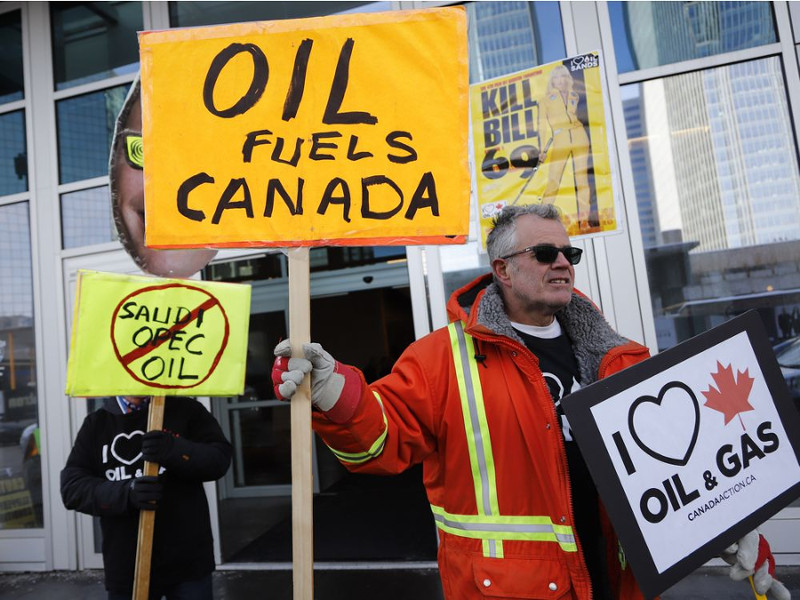
Interest in alternatives to the oil economy may be further advanced by the unintended consequences of Kenney’s efforts to portray Alberta oil as ‘good oil’. While he puts on a tough oil-neck face when it comes to fighting Trudeau and Notley and their “bleeding-heart” supporters, he also spends millions of dollars on the Canadian Energy Centre to brand Alberta oil as more democratic than Saudi, Russian or Venezuelan oil and as career opportunities for women, and a chance for First Nations people to escape backwardness and poverty.
Many of his followers are outright racists and sexists, adoring him because they think he’s exactly what they think of themselves: Hard-working, honest, no time for bullshitting about the rights of women, let alone queer or First Nations’ rights. However, Kenney speaks with a forked tongue. Tough talk for his oil-neck followers, friendly invitations for everybody else. He doesn’t mind women or First Nations people, he only objects to them claiming rights that possibly stand in the way to oil-prosperity. Everybody willing to join the oil-team is welcome; everybody who objects, is an enemy. Regardless of gender or skin-colour.
Reaching out to as many people as possible may be a good idea, but is risky, too. As with Wexit, his core supporters may be upset and disappointed when they find out he’s also talking to broads and redskins. Sometime supporters of different walks of life may find his double-forked talk shallow, and many who take women’s and First Nations’ rights seriously and supported Kenney, despite his tough talk because they didn’t see an alternative to the oil economy, may be appalled by his chutzpah to talk friendly about women and First Nations while his actions speak an entirely different language.
Subsidizing the Oil Economy
A number of fault-lines are running through Kenney’s support camp, drawn by different views on women, First Nations and Alberta sovereignty. But there is just one punch-line: profit. If the oil economy can generate a profit, some women will join the oil-team despite the misogyny of many others on the team. Likewise, some First Nations people will turn a blind eye to racism. Kenney may even persuade a handful of cautious environmentalists that the oil economy will generate the money needed to pay for the transition from fossil to sustainable energy production.
The oil-economy did generate profits before the corona-crash. Just not as much as would have been needed to meet shareholder expectations and throw money at those who could co-opted. In fact, the oil-economy got used to profit-bolstering subsidies when oil-prices were in three-digit territory and felt in need of even more subsidies once it found itself squeezed between an oil-glut and competition from solar and wind energy producers. Kenney’s Alberta-first-or-Wexit campaign was all about getting more money from Ottawa. Since the corona-crash, money from Ottawa has become Kenney’s default option.
He fires 25,000 education workers one day to move them from the provincial payroll to federal EI. But the next day he throws $1.5-billion (US) in cash and another $6-billion (US) to guarantee loans next year for Keystone XL just so they can work on the pipeline. Begging for federal money destroys his image as a sovereignty-warrior. Scaled-up subsidies to the oil-economy while gutting public services reveals the spineless oil-lackey behind the free market rhetoric. Throwing the latest stash of money at a US company is particularly delicate as, just weeks ago, he claimed that anti-pipeline protesters are all paid by US organizations. The only rational decision he recently made was slashing 90 per cent of the Canadian Energy Centre’s $30-million (CDN) budget. Good oil branding is over, now it is about getting as much as you can out of the province for him and his buddies before closing the shop for good. If you ever wondered what cold turkey looks like – here it is.
Alternatives
From boom to bust, subsidies never comply with the laws of supply and demand. Kenney’s transformation from the guy willing to break up the Canadian federation in order to restore market sovereignty in at least one province, to subsidy-junkie desperate for another shot from Ottawa also undermines his free-marketeer image.
A lot of people may not care too much about free market principles, and are waiting for that cheque from Ottawa just as Kenney is. Yet, as a way of making sense of the world, whether agreeing with the way it is, or looking for alternatives, principles matter a lot. From the 1980s onwards, free market principles became pretty much the name of the game. Even most people who lost their jobs or saw them downgraded from a decent income to precarity status accepted such verdicts derived from the laws of supply and demand. The movement against corporate globalization challenged these laws through mass mobilizations in the early 2000s, but pretty much fell apart after the invasion of Iraq in 2003 signalled the beginning of permanent war as a compliment to the global free trade agenda.
The nationalism and racism that flourished as ideological by-products of those wars became even more important after the Great Recession of 2008-09. Discontent that had been articulated in different places and at different times prior to the crisis was globalized in no time. Occupy Wall Street and We Are the 99% became rallying points all over the world. Among others, they inspired Syriza and Podemos and the movements around Jeremy Corbyn and Bernie Sanders.
Yet, widespread quests to throw off the yoke of global finance could be transformed into a call to restore national or, as in Kenney’s case, provincial, sovereignty. For an emerging new right, it wasn’t big money against everybody else but hard-working locals against jet-setting globalists. Kenney, in one of his ideological trappings, rode that ideological wave even though he wished nothing more than to sell made-in-Alberta oil on global markets. As a democratic diversity blend rather than heavy crude, of course.
The global markets failed him and others of his ilk. The corona lockdown did what Trump’s trade wars couldn’t do: Disrupting the global supply chains around which capitalism had been rebuilt in the free trade era and pushing the world economy into a long-awaited recession. Bail out programs may mostly aim at saving private companies, but their scope is much larger than during the Great Recession, making it very clear that state capacities have not melted into thin air under the free market reign.
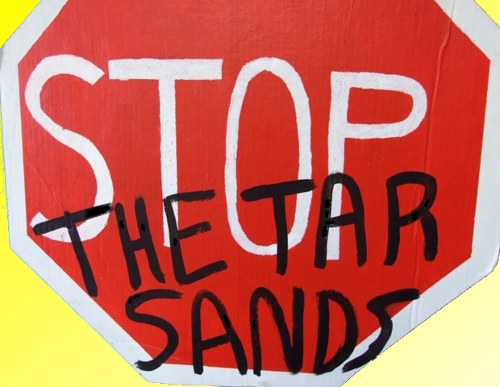
To be sure, the root cause of the Great Recession was much clearer than that of the present-day recession. Global finance had become the nerve centre of capitalist production and circulation. Hence, doubts about insufficient demand or profitability first showed on financial markets. Inevitably, collapsing stock prices cut lines of credit and payments which then stalled circulation, and eventually, production. Everything Karl Marx said about capitalism and crisis was validated within weeks. This time, capitalists, though nervous about the crisis and keen on directing as much of the bail-out money as possible their way, are happy to say, “It wasn’t us.” Capitalism as a crisis-generating system of economic and social organization has become the invisible player behind the corona-pandemic.
Viruses, not stock-market fever and the subsequent hang-over, dominate collective consciousness. However, the anti-capitalist responses that were triggered by the more openly capitalist crisis of 2008-09 are not forgotten. They still form part of collective memories, often overlaid with recent injections of nativism but also mingled with welfare state nostalgia. This jumble of sometimes reinforcing, sometimes conflicting, ideas, sentiments and aspirations may dissolve into new sets of individual and collective preferences.
Until just a few weeks ago, the Cree prophecy that some people won’t realize that they can’t eat money until the last tree has been cut, the last fish caught and the last stream poisoned may have sounded like a mixture of bleeding-heart liberalism and redskin romanticism to many outside the ranks of environmental and First Nations organizers. Now, fearing for their health and access to food in the short run, and jobs, incomes and housing beyond the corona-outbreak, it may sound like common sense. The same applies to the people-before-profit that a small bunch of alter-globalistas were chanting in downtown Calgary while the G7 were meeting in nearby, but heavily police-guarded, Kananaskis in 2002.
Few people think of Alberta when they think of progressive movements. The rise of the oil economy in the post-WWII period turned almost everybody in the province into oil-money addicts. This was not because oil really ever was the only industry in the province, but because it became the only one that was politically represented, in fact, over-represented, one should say. What disappeared in the shadow of the oil economy was a radical history, most dramatically signified by the general strikes in Edmonton and Calgary and the founding of the One Big Union in 1919 in response to the miners’ strike in Crowsnest Pass and the founding of the Co-operative Commonwealth Federation (CCF) in Calgary in 1932. With the oil economy faltering, this history can be brought back to life by a new generation of activists seeking to advance an ecologically and socially just transformation of the province’s economy. However, any such efforts will face bitter opposition from vested oil interests. Overcoming this opposition will help to build the collective capacities needed to sustain an ecologically and socially just society. •




